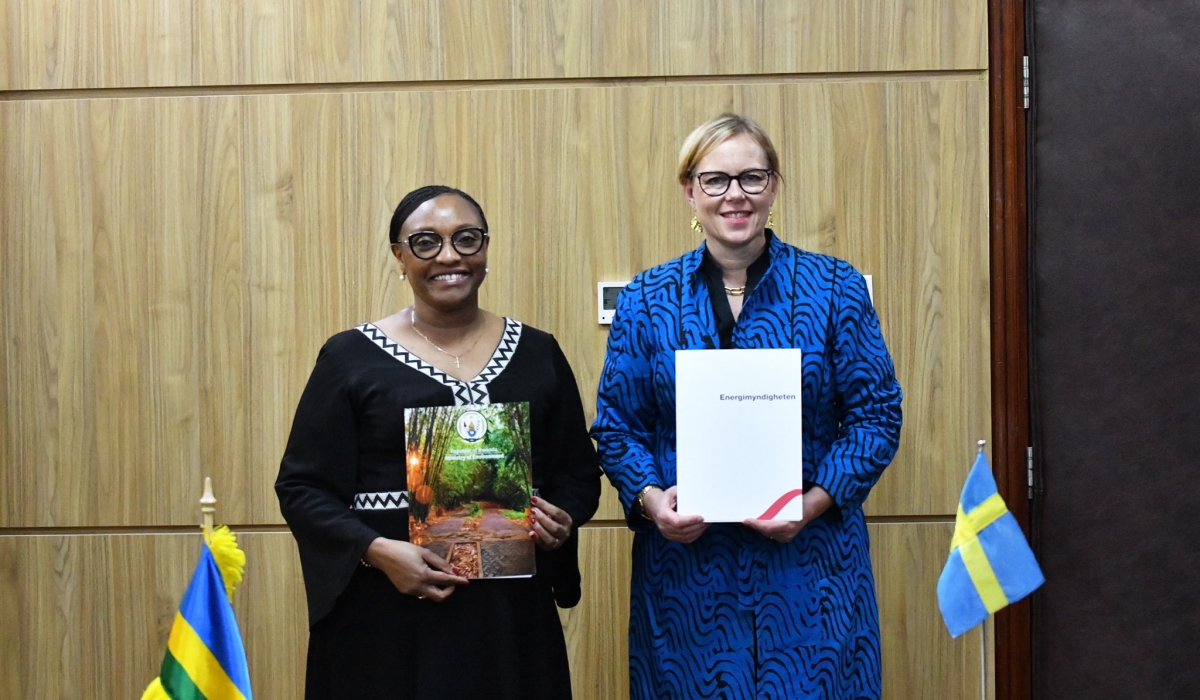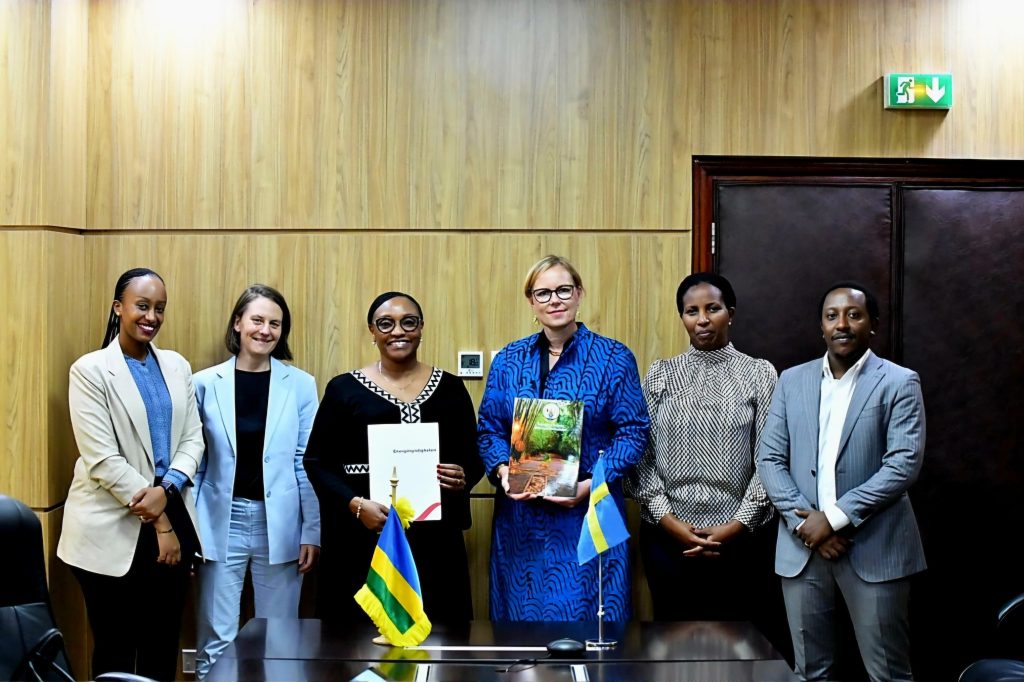In a significant move towards enhancing climate action, Rwanda and Sweden have entered into a strategic partnership to boost climate finance through the carbon market. This agreement, formally signed by Rwanda’s Ministry of Environment and the Swedish Energy Agency, aims to facilitate the trading of carbon credits, thereby strengthening both countries’ efforts to reduce greenhouse gas emissions and meet their respective climate goals.
The carbon market serves as a vital mechanism that allows countries or companies that continue to emit greenhouse gases to invest in green projects located in nations that have successfully reduced their emissions. These reductions are quantified in carbon credits, with each credit representing one tonne of carbon dioxide emissions that have been effectively curtailed. By purchasing these credits, polluting entities can offset their emissions, effectively contributing to global efforts aimed at lowering overall greenhouse gas levels.
This cooperation is not just a bilateral initiative; it is also part of the broader framework established by Article 6 of the Paris Agreement, adopted in 2015 during the landmark UN Climate Change Conference in Paris. Article 6 promotes voluntary international collaboration in emission reduction through carbon trading, which ensures both environmental integrity and enhanced efficacy in achieving global climate targets.
Rwanda, as part of its Nationally Determined Contributions (NDCs), has set an ambitious goal to reduce its greenhouse gas emissions by 38% by 2030. To facilitate this critical endeavor, the country is seeking $11 billion in climate finance, with carbon trading playing a crucial role in generating these necessary funds. Rwanda plans to sell approximately 7.5 million tonnes of carbon credits, which could yield around $337 million, based on a projected price of $30 per credit.

Furthermore, the agreement also opens the door for Sweden to finance a variety of emissions reduction projects in Rwanda. This support will not only aid Rwanda’s sustainable development initiatives but will also help Sweden fulfill its international climate commitments. The collaboration will enable both nations to share technical expertise, build capacity, and formulate joint strategies aimed at meeting their respective NDCs under the Paris Agreement.
Rwanda’s Minister of Environment, Valentine Uwamariya, emphasized the significance of this partnership, stating, “This agreement with the Swedish Energy Agency reaffirms Rwanda’s commitment to implementing Article 6 of the Paris Agreement and advancing our Nationally Determined Contributions. Through this partnership, we will not only meet our climate targets but also support sustainable development that benefits our people and environment.”
Chargé d’affaires at the Swedish Embassy in Kigali, Martina Fors Mohlin, echoed this sentiment, praising Rwanda’s leadership in sustainable development. “Rwanda’s efforts to combine economic growth with ambitious climate goals set an example for other nations. Sweden is committed to supporting high-quality greenhouse gas mitigation projects in Rwanda, contributing to the country’s green transition,” she said.
This partnership lays the groundwork for deeper climate cooperation between Rwanda and Sweden, positioning both nations to accelerate their efforts in reducing emissions and achieving their climate objectives on a global scale.

